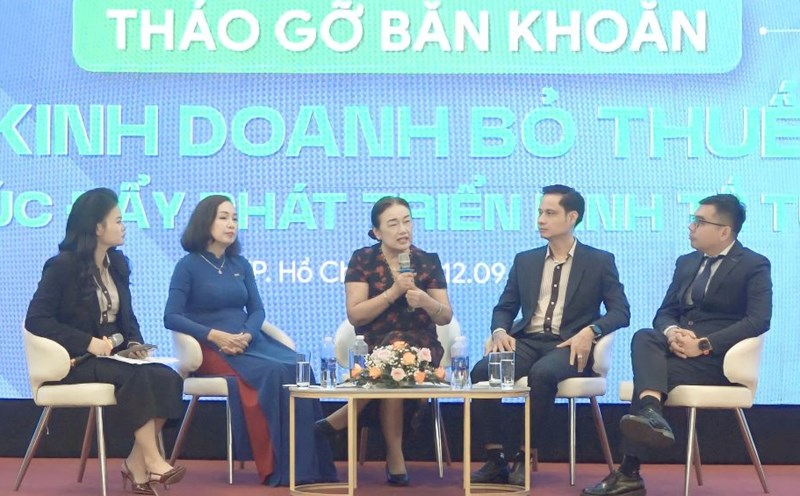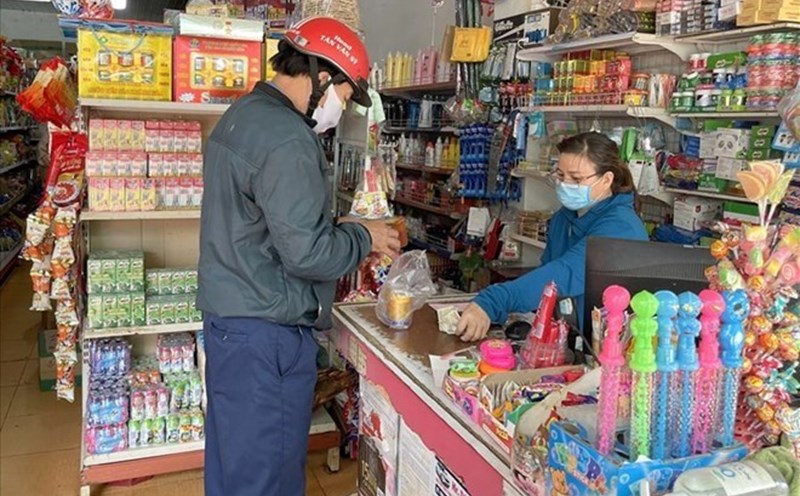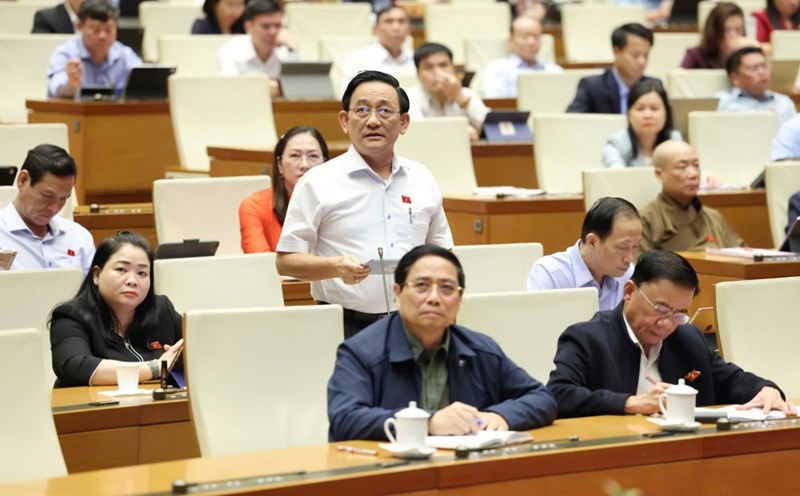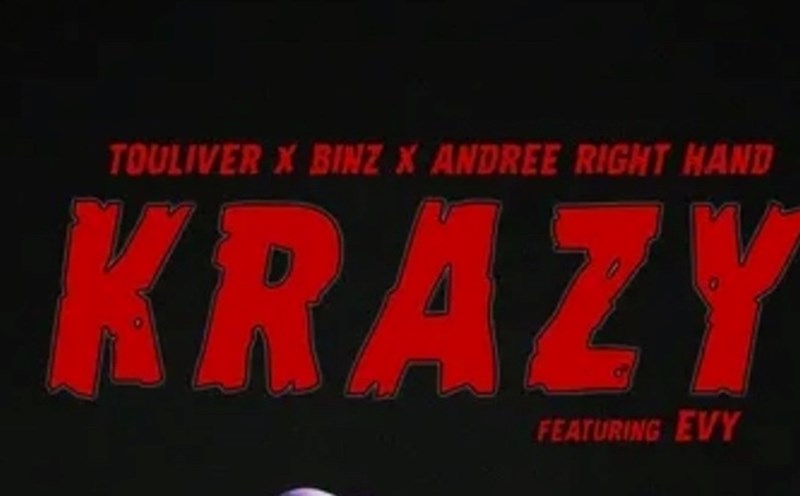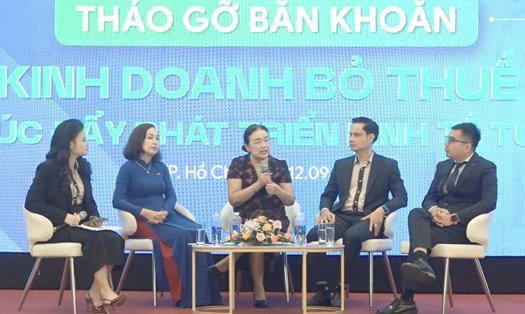Technology enterprises accompany new tax policies
On October 23 in Hanoi, MISA Joint Stock Company held a ceremony to announce the program of giving free software to 2 million business households to eliminate contract tax according to Resolution 68-NQ/TW, with the support of the Tax Department, Vietnam Association of Small and Medium Enterprises (VINASME) and Vietnam Tax Consulting Association (VTCA).
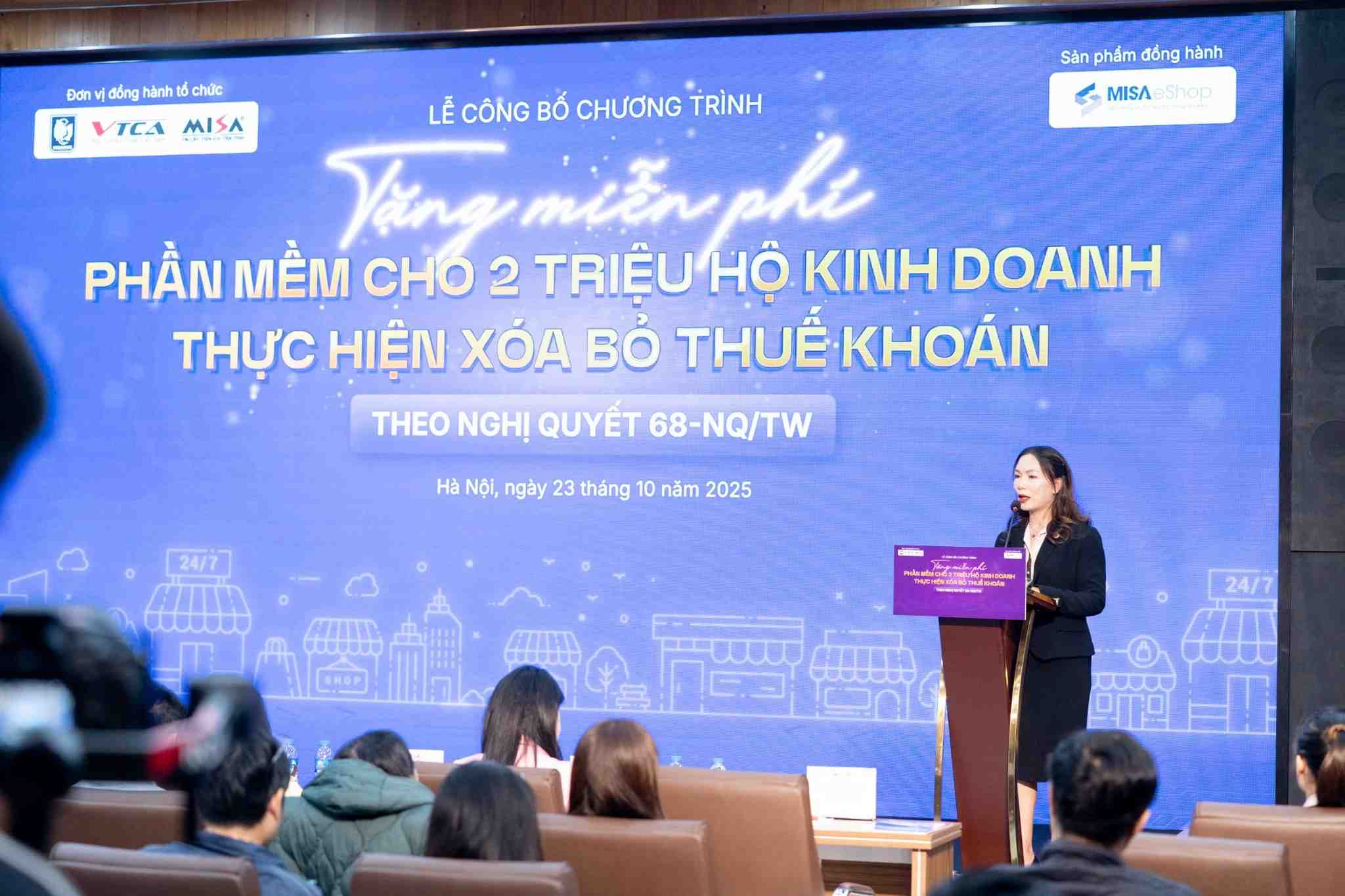
Speaking at the event, Ms. Dinh Thi Thuy - Vice Chairwoman of the Board of Directors of MISA - emphasized that the elimination of contract tax is an important step in the journey to modernize the Vietnamese tax system, requiring the support of technology enterprises for the policy to truly come into life.
With more than 31 years of pioneering in digital transformation in the finance and accounting industry, MISA is committed to supporting business households to declare and pay taxes more transparently, accurately and conveniently, contributing to building a fair and sustainable digital economy and focusing on people, Ms. Thuy shared.
According to her, the program of giving away free MISA eShop software to 2 million business households was implemented to accompany the State's policy, supporting the process of converting from contract tax payment to declaration. Each participating business household will be given 3 months of MISA eShop software use, plus 1 year of free digital signature and 5,000 electronic invoices.
Mr. Nguyen Van Than - Chairman of VINASME - assessed that this is a highly social program, contributing to concretizing Resolution 68-NQ/TW, helping businesses adapt to the new tax management model. Ms. Nguyen Thi Cuc - Chairman of VTCA - commented that the coordination between tax authorities, consulting organizations and technology enterprises is a prerequisite to help business households declare conveniently, reduce errors and increase financial management capacity.
The Tax Department is committed to supporting all business households
Speaking at the event, Mr. Mai Son - Deputy Director of the Tax Department, Ministry of Finance - said that the shift from contract tax to declaration is an important step in modernizing tax management, towards a fair, transparent and convenient system for taxpayers.
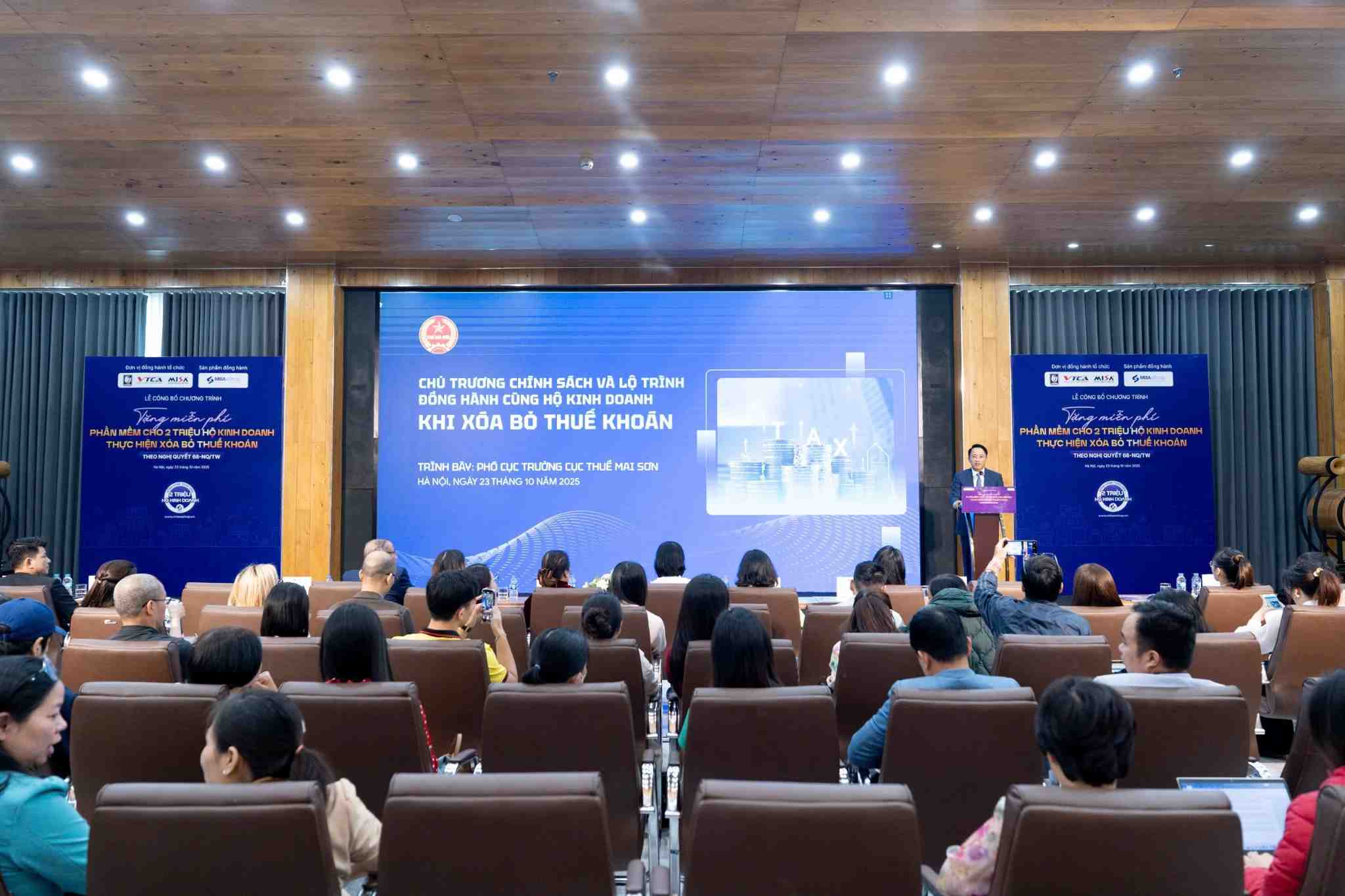
The Tax Department is committed to continuing to review legal regulations to help business households and enterprises reduce administrative procedures and fulfill tax obligations more easily. The Tax Department is coordinating to build a truly simple accounting regime, suitable for each scale of operations, from households with revenue under VND200 million to under VND3 billion, helping people to conveniently declare and make financial transparency," he said.
According to him, for households with larger scale and wide scope of operations, the tax authority is perfecting the policy to encourage conversion to enterprises to enjoy support, incentives, tax exemptions - reductions - extensions like other enterprises, especially in difficult times.
The Deputy Director of the Tax Department emphasized that from now until December 31, 2025, all tax authorities across the country will simultaneously approach and directly guide business households. The Tax Department is also upgrading the eTax Mobile application and opening a separate electronic portal for businesses, helping people to test operations before officially implementing taxes from 2026.
The goal is to help businesses be able to trial operations, get acquainted with the system, and receive timely messages and instructions from tax authorities. "We also hope that people can rest assured that the Tax sector will ensure transparency, fairness, and accompany taxpayers to comply with regulations. When the tax authority has accompanied, I am confident that there will be no administrative violations due to mistakes; if there are errors, the tax authority will be responsible for guiding and supporting to overcome them, Mr. Mai Son affirmed.
The leader of the Tax Department also said that from now until December 31, 2025, the tax sector will focus on the "practic testing" phase for business households to get acquainted with, thereby detecting problems. The feedback in this testing phase will be the basis for the tax authority to complete the process, helping businesses avoid errors when officially implementing it later.


